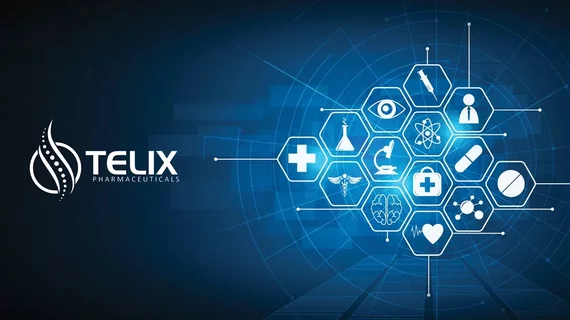Telix Pharmaceuticals to acquire portfolio of imaging-related assets for up to $185M
Telix Pharmaceuticals Ltd. has reached a deal to acquire a portfolio of potential imaging agents and other assets for up to $185 million, the company announced Monday.
Inglewood, California-based biotechnology company ImaginAb is the seller, unloading a pipeline of drug candidates, technology platform and research facility. Telix noted that the acquired assets allow for “highly specific cancer targeting” by combining “fast tumor uptake and blood clearance.”
The growing Australia-based pharma firm sees great potential in the acquisition, with drug candidates that are “highly effective for imaging and treating tumors with a broad range of radioisotopes.”
“The combination of a proprietary drug discovery platform, pipeline of promising theranostic assets and a talented team of subject matter experts will enhance Telix’s research and innovation capability now and into the future,” Richard Valeix, CEO of therapeutics at Telix, said in a Jan. 13 announcement. “This acquisition will enable Telix to explore new disease areas with state-of-the-art radiotherapeutic technology.”
Telix has inked an asset purchase agreement with ImaginAb, along with a technology licensing pact to be signed at closing. The purchase price is $45 million (USD), including $10 million in cash and $31 million in equity at closing. They’ll also make a deferred payment of up to $4 million in equity at the conclusion of a 15-month indemnity period. Upon hitting certain developmental and commercial milestones, Telix will pay up to a total of $185 million, which will be split between cash and equity in the pharma firm. The publicly traded company said it will issue ordinary shares to ImaginAb as consideration for the acquisition. Royalties also are payable on net sales after the first four products have been developed.
Telix touted the inclusion of a “state of the art” research facility in California, staffed by a “talented team of discovery, protein-engineering, and radiopharmaceutical development experts.” Taken as a whole, the portfolio will grant Telix new in-house capabilities in engineering antibodies and developing preclinical drug candidates. It’s also adding a novel biologics platform, allowing the company to “create the next generation of Telix precision medicine and therapeutic products, beyond the current clinical-stage pipeline.”
“As the radiopharmaceutical sector gains momentum there is a significant need for targeting agents to be more selective, deliver less off-target radiation, and better match the pharmacology and radiobiology of a given radionuclide,” Anna M. Wu, PhD, co-Founder of ImaginAb and a research professor at UCLA, said in a statement. “The team’s deep expertise in antibody engineering and the resulting development of a valuable, proprietary platform technology has led to clinical proof-of-concept. Telix is the right partner to unlock the future therapeutic potential of this platform.”
In other news, Telix also recently submitted an application to the U.S. Food and Drug Administration as it seeks to release a new imaging agent for kidney cancer. The company has been on a buying binge of late, also adding another portfolio of imaging agents for $171 million in November and acquiring RLS Inc. for $250 million in September.

